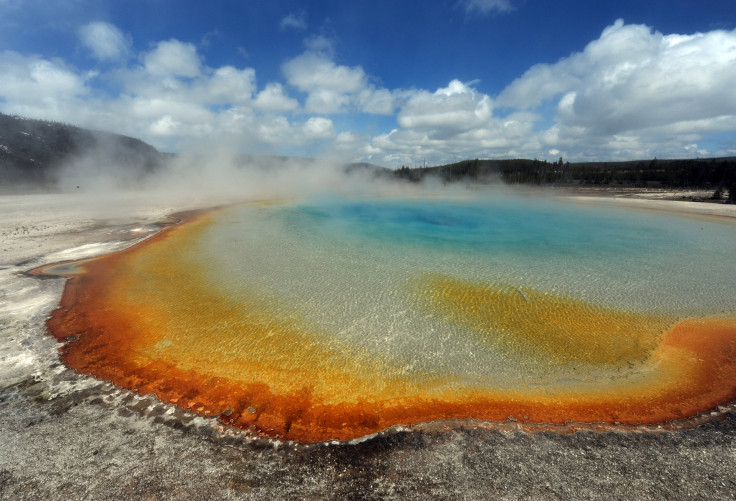Scientist Claims Yellowstone Supervolcano Could Erupt Next Week

KEY POINTS
- The Yellowstone supervolcano might be overdue for an eruption
- A scientist claimed the supervolcano could erupt next week
- USGS believes Yellowstone would only cause a hydrothermal eruption
A scientist claimed that although it is not yet clear when the Yellowstone supervolcano would erupt, it could happen soon. According to the scientist, the supervolcano could cause a violent eruption next week given its current status.
The Yellowstone Caldera, which measures about 34 to 45 miles wide, is a supervolcano located in the Yellowstone National Park. The last time it erupted was about 640,000 years ago, leading many scientists to believe that the supervolcano is already due for another eruption.
According to scientists, each time the Yellowstone supervolcano erupts, it causes dramatic changes to its surroundings. Based on geological data, Yellowstone’s major eruption happened 2.1 million, 1.3 million and 640,000 years ago.
Its latest major eruption is credited for creating the main Yellowstone Caldera and the Lava Creek Tuff, a natural formation composed of porous rock volcanic ash in Wyoming, Montana and Idaho.
Data collected on the history of the supervolcano revealed that its major eruptions occurred once every 600,000 to 800,000 years. Since the last time Yellowstone erupted was within, many scientists believe that it is already due for another violent explosion.
One of the scientists who believe that Yellowstone could erupt soon is former university professor Ron Smith. During a lecture held this week at the Dixie University in Utah, Smith discussed the Yellowstone supervolcano and its current status.
Although it’s hard to predict when it will erupt, Smith noted that it’s possible that an eruption could happen within days or thousands of years.
“Yellowstone has gotten a lot of publicity because of the severity of a supervolcano and the effect it would have on the Earth,” he said during the lecture according to Express. “We cannot say that Yellowstone is overdue. It is probably going to blow again but it could well be 500,000 years from now or a week from Tuesday.”
The U.S. Geological Survey (USGS), on the other hand, assured the public that the chances of an explosive eruption happening within the foreseeable future are extremely low.
The agency noted that if Yellowstone does erupt, it would most likely cause a hydrothermal eruption and not a volcanic one. As explained by the USGS, hydrothermal eruptions occur in shallow reserves of hot water and steam. They are generally less explosive than volcanic eruptions.
© Copyright IBTimes 2025. All rights reserved.





















